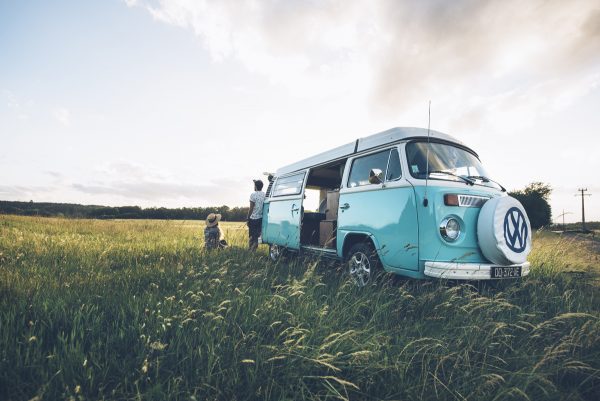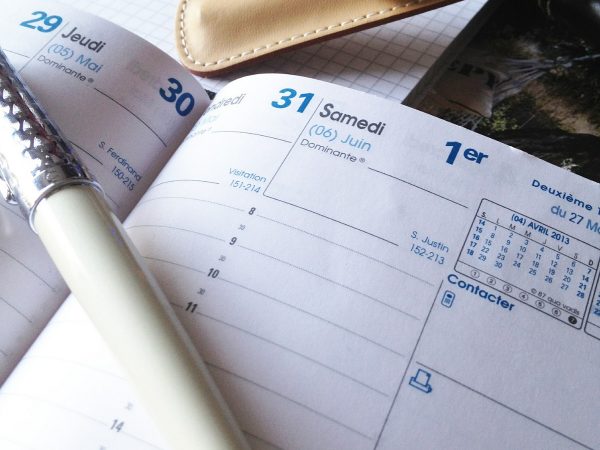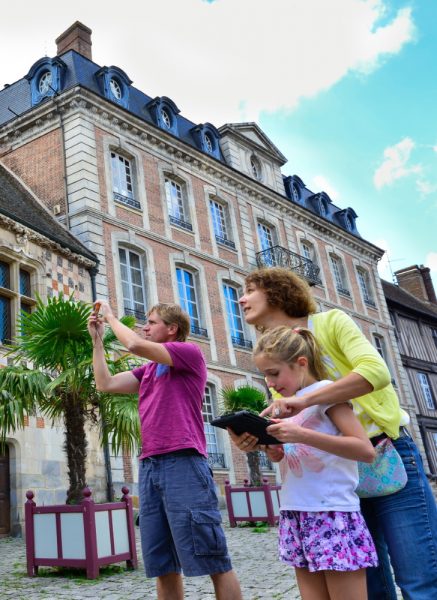On a hot summer morning I surrendered in the heart of the euroise countryside meet a beekeeper recently installed in the department: the Apiary of Authieux. Straight from Seine-Maritime, Laurent Campbell chose the town of Bois-Anzeray, 15 minutes north of Rugles, to set up his apiary.
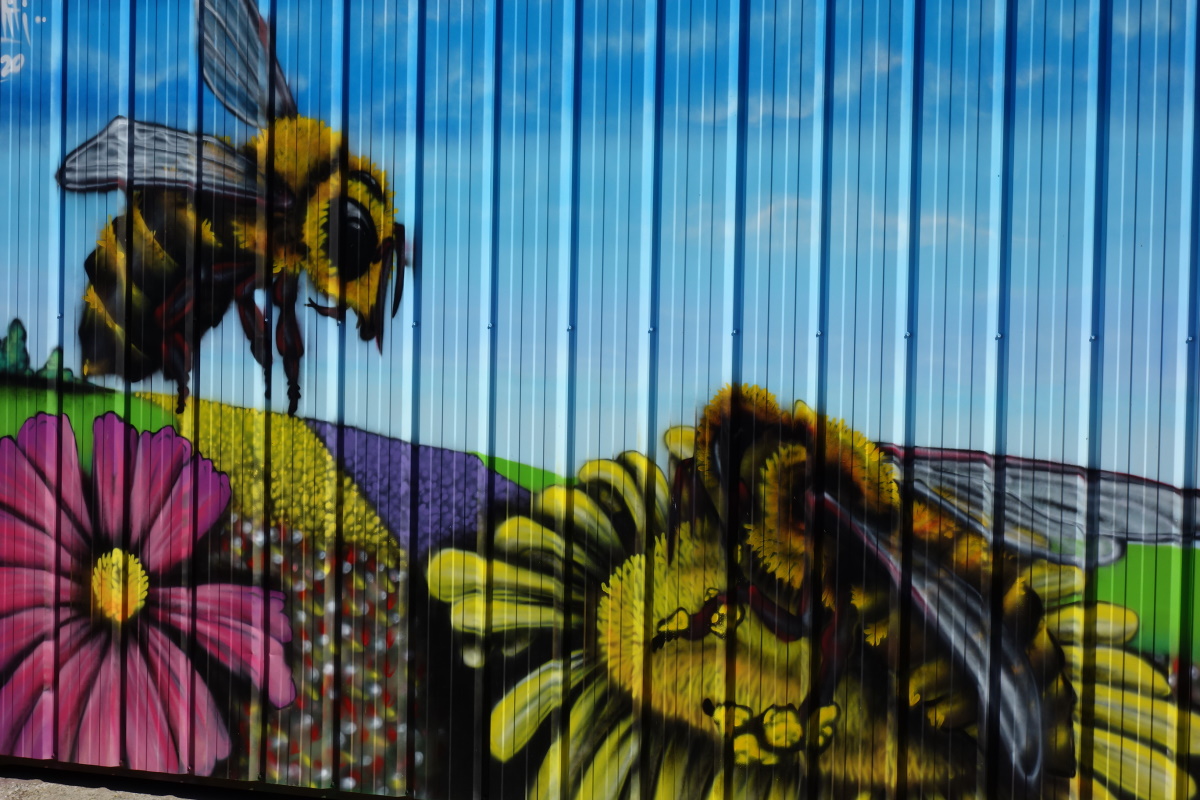
On the spot Laurent operates about twenty colonies, but he is in charge of about 80 beehives on the land of private individuals in the surroundings. As he explains; “I started beekeeping out of passion for bees in 2015 and I fell under the spell of its beautiful foragers and more generally for nature and the environment. This is how the educational and participatory apiary project began. ”. Here, in Bois-Anzeray, he offers the fruit of his labor in a pretty little shop, but above all, he welcomes individuals and small groups to make them discover his profession and his approach with the greatest respect for insects and of biodiversity.
So after making an appointment, here we are, me and my two children aged 5 and 8, about to visit the Apiary of Authieux.
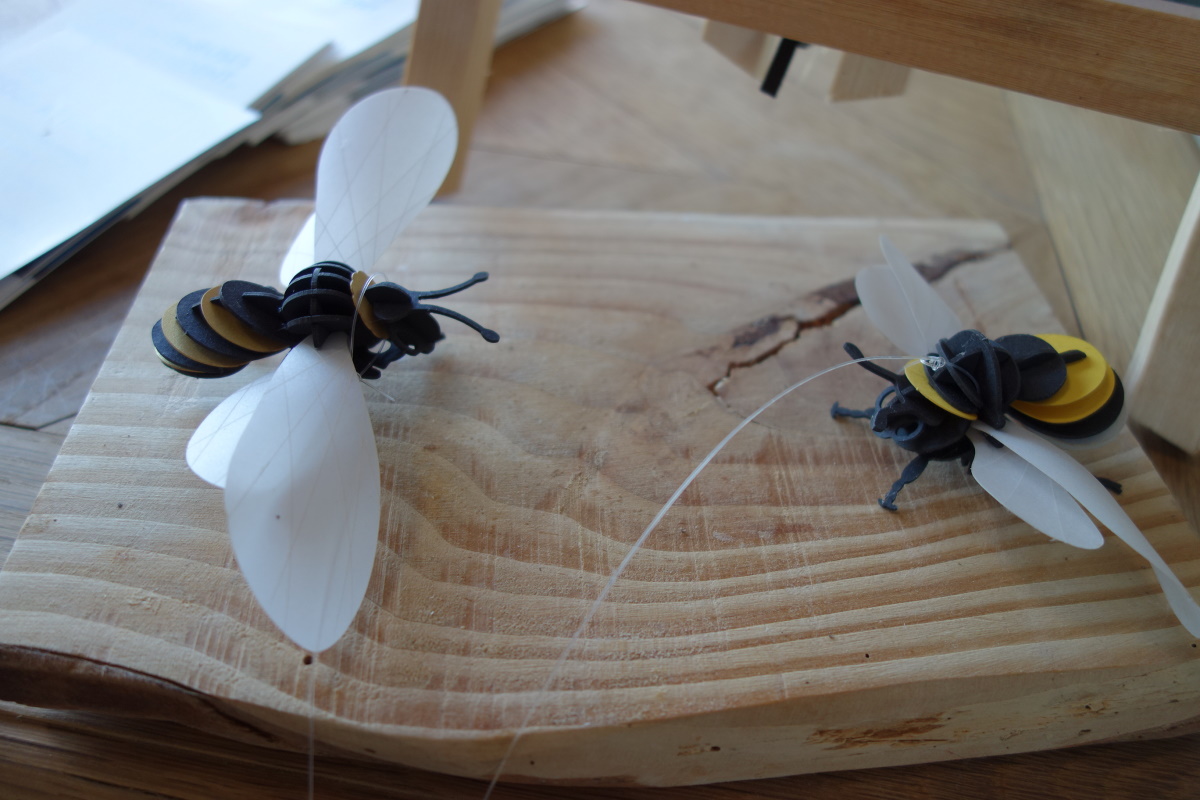
The three of us disembark in the hamlet of Marnières, at the Agapé farm. Agape, in Greek, means "divine" and "unconditional" love, that of principles. It is aptly named because the Apiary of Authieux, which has settled on this farm, has an unconditional love for nature and the bee in particular.
In front of us stands a huge fresco recently painted by a local artist. No doubt, we are in the right place.
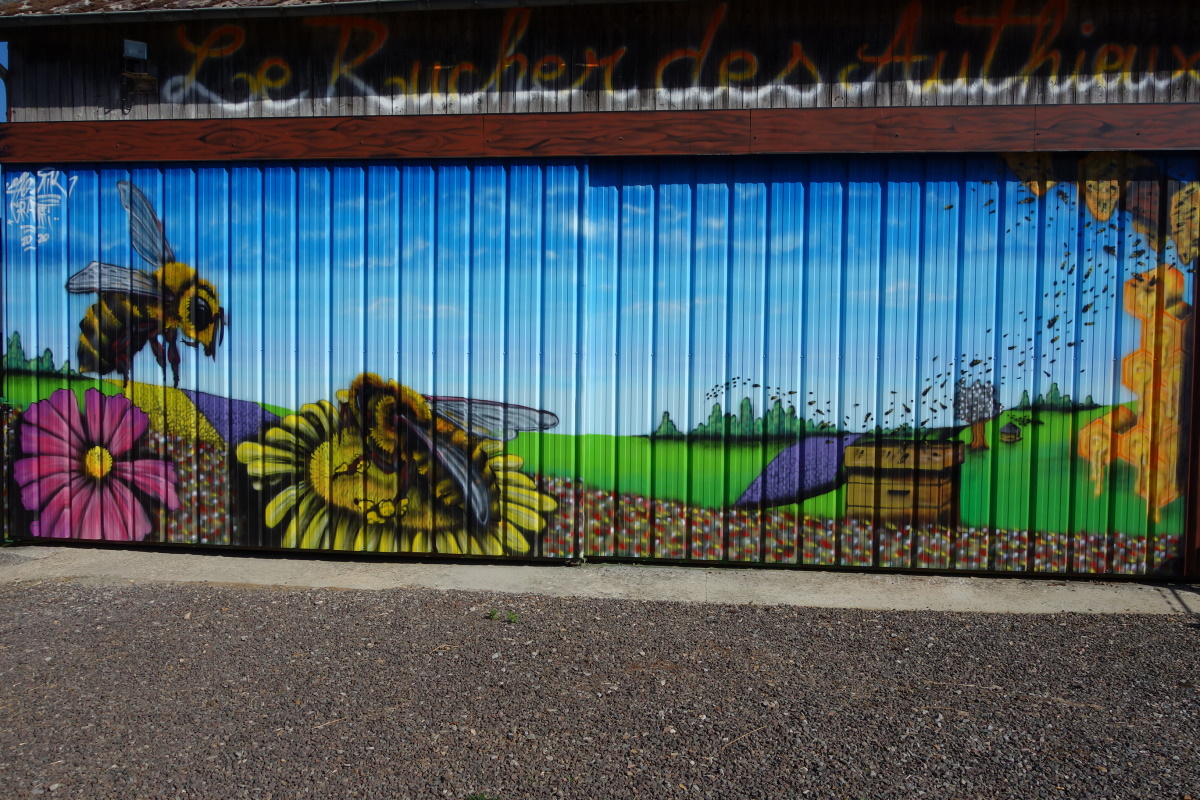
As soon as we arrive, the curiosity of my children is aroused on all sides. Here an insect hotel, there a giant bee at the foot of apple trees, further on, a swing is suspended on a tree in the middle of a pasture whose grasses are deliberately left high.
At this time of year, the vegetation is poor and dry. But we can easily imagine that in the spring, the bees will forage with pleasure in the middle of a variety of wild plants, a growing vegetable garden and a flowering orchard.
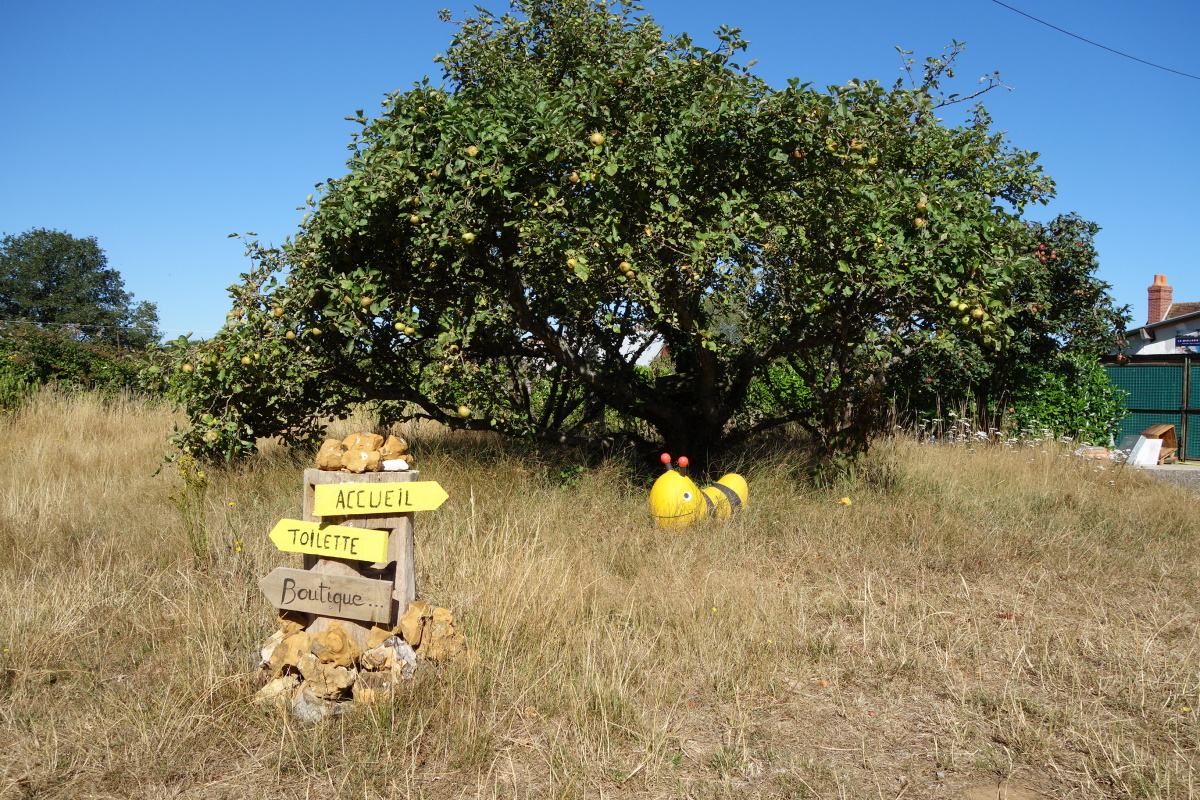
Laurent is about to take a group of individuals dressed in strange combinations to his hives. He pauses for a few seconds to greet us and offer my two children two buckets of granules. While waiting for our turn, we will get acquainted with two young donkeys that my daughter and my son will feed with joy! The two beasts are gentle. They approach us with relish and let themselves be caressed with pleasure. Since our last visit, 1 donkey (Trotro) has been born and 3 goats have joined the estate.
Next to them, young people hens and ducklings play in a large container of water made available to them. The children are won over. But it's hot and we decide to come back to the shop to sit in the shade.
Laurent gave us suits to put on in the hangar that we saw on our arrival. Here we are cool. Upstairs in this building, there is an educational room to accommodate groups and apprentice beekeepers. Four stone benches allow us to put on these full suits more easily. With our gloves and veiled hats, we will look like real cosmonauts!
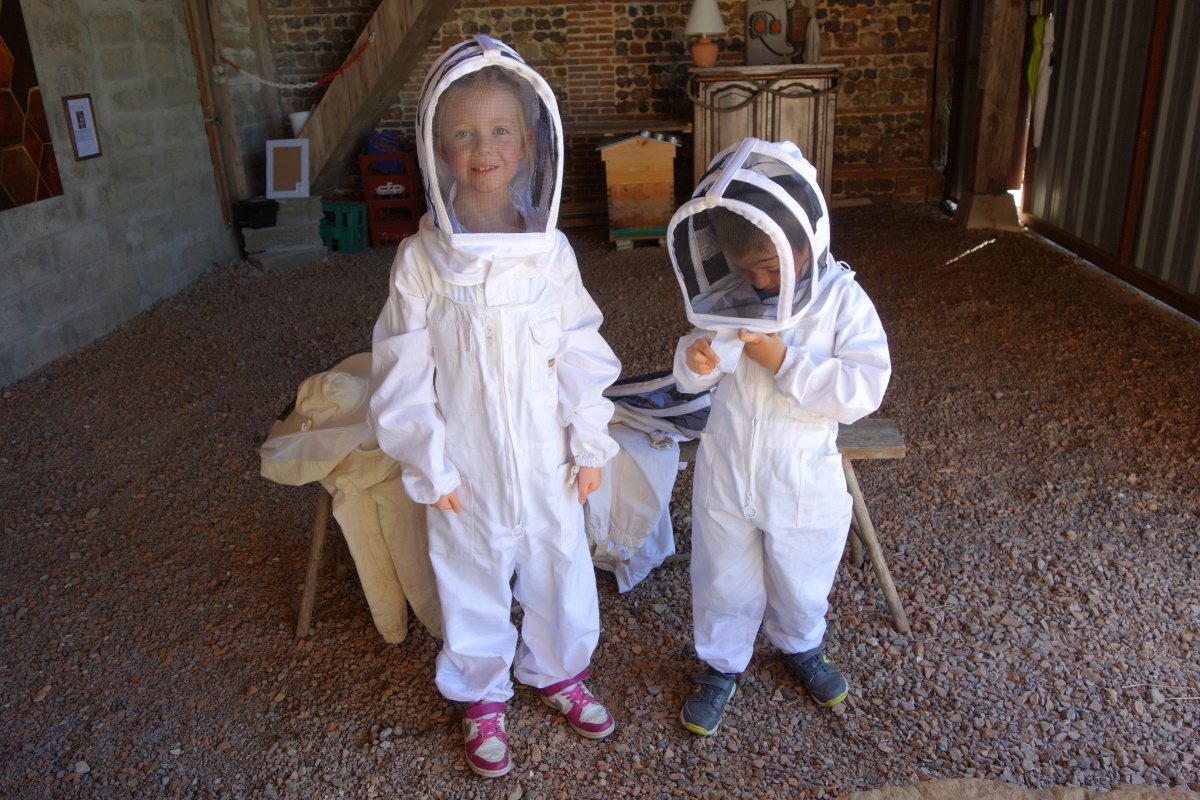
Another family joins us and the visit can begin. Laurent first presents his approach and his project to us. As we could see when we arrived, the idea is to work in harmony with nature. Its beekeeping methods and in general, the upkeep of the farm and its green spaces naturally give it the organic farming label.
Then we approach an empty beehive and the beekeeper begins to reveal us the extraordinary and meticulous functioning of a swarm of bees. Larvae, workers, drones, queen… We get to know the different members of the colony. Pollen, royal jelly, propolis, honey… We explore the virtues of products from the hive. Alveoli, frames, hikes, doors… Laurent dismantles the hive and explains to us the functioning and the compartments of this strange “house-factory-nursery”! Over the course of his speech, he invites us to interrupt him to question him. He adapts his explanations for young and old. He does not hesitate to put himself at the height of a child to arouse their curiosity and observe their reactions. We are all very attentive. Our curiosity is aroused and there are many questions.
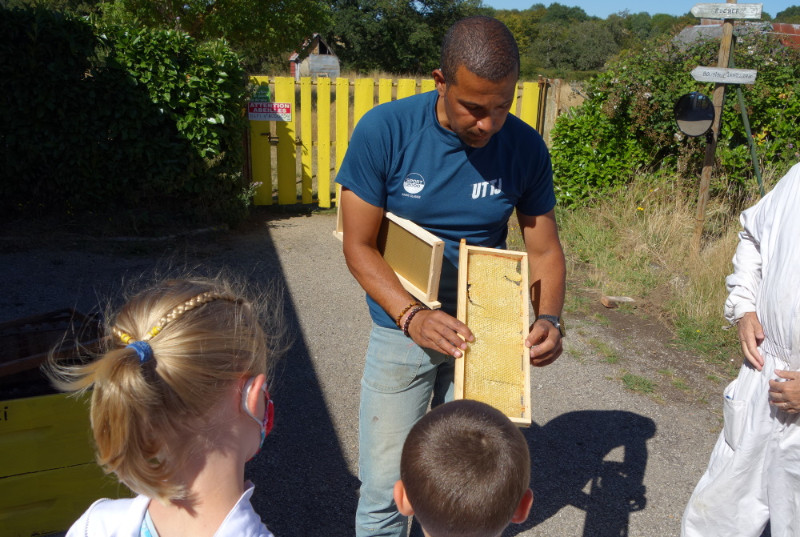
Then comes the most impressive moment: theimmersion in the heart of the hives. We walk a few hundred meters then Laurent invites us to put on hats and gloves. After having recalled some safety rules and verified the perfect impermeability of our suits, he invites us to approach a dozen active beehives.
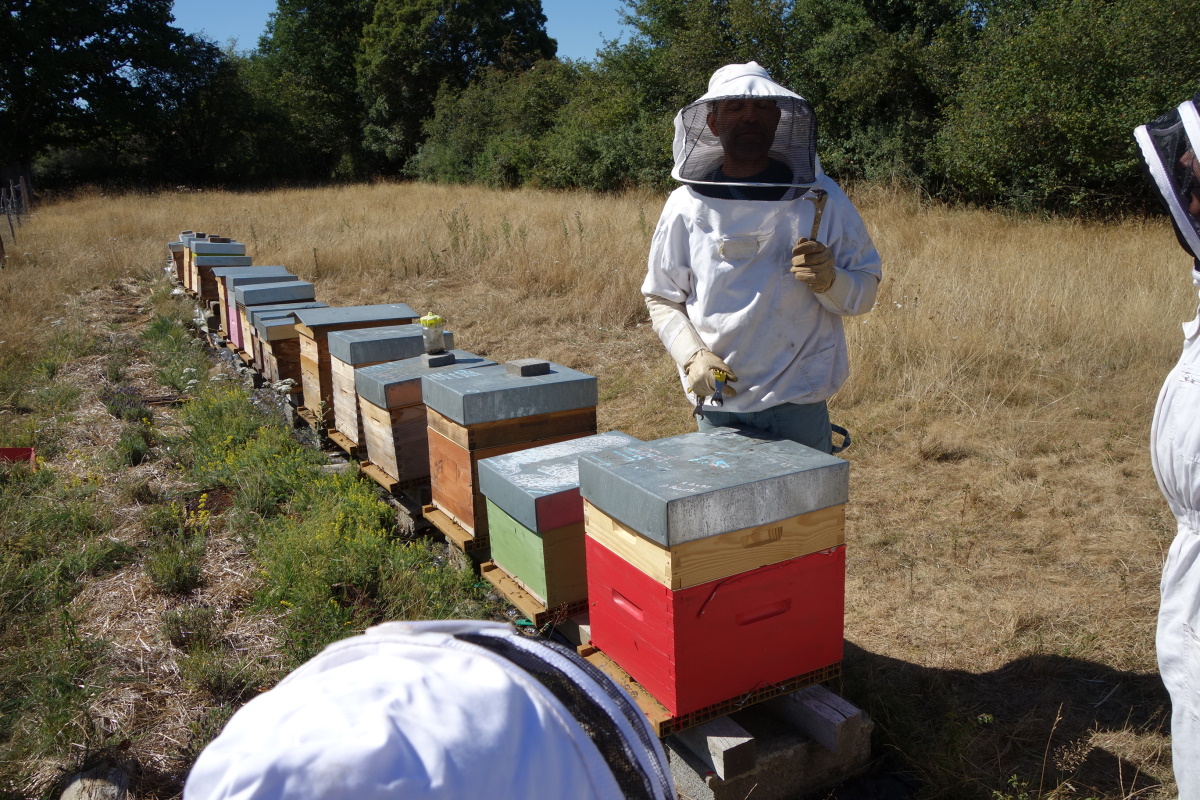
Each of us leans over a beehive to watch the workers come in and out, our hind legs covered in pollen. Then, Laurent opens one of them and delicately leaves a frame covered with several hundred individuals.
Faced with this unusual activity, the guards appear and turn around us. My son is not reassured. He pulls back and hides behind me while watching Laurent's gestures so as not to miss a thing of the show! The buzzing sound is louder but we feel completely secure in our wetsuits. It's warmer, and the mesh that protects our faces doesn't let much air through. We measure the difficulty of the working conditions of a beehive operator in the middle of summer.
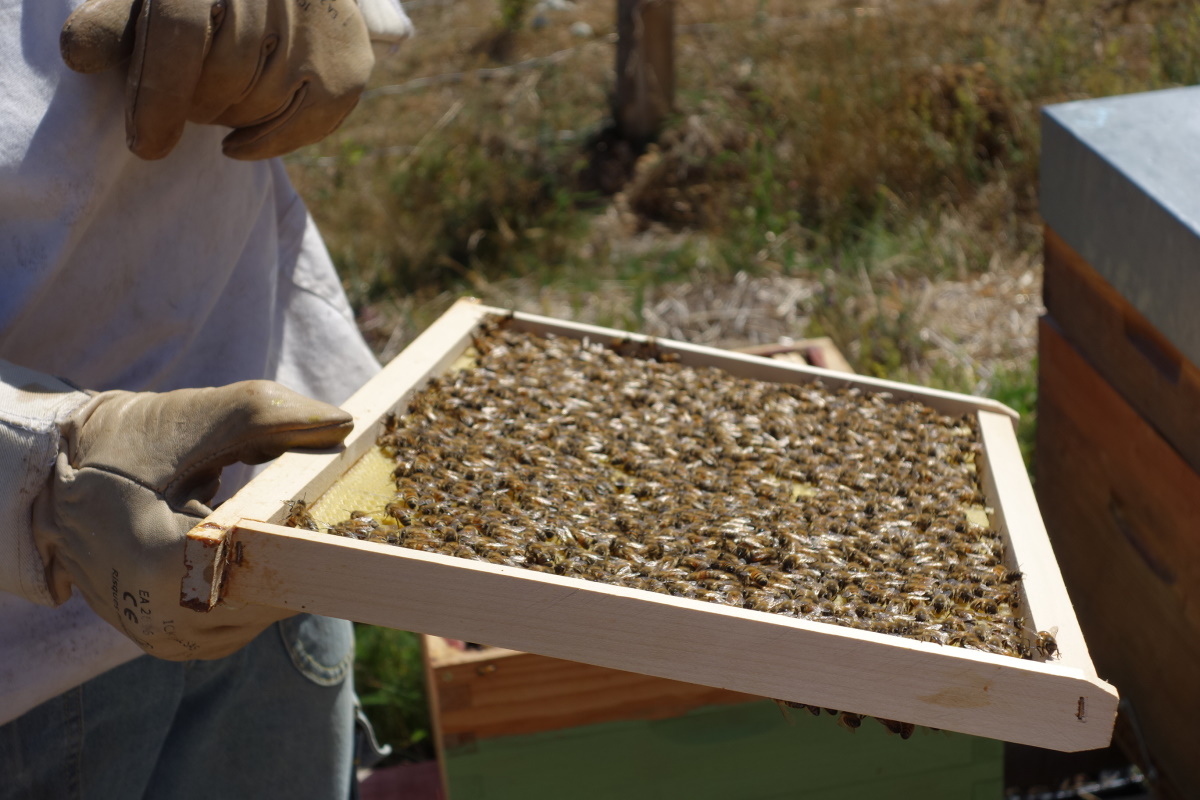
With slow and measured movements, Laurent shows us the cells where pollen or brood are stored (eggs and larvae). The beekeeper excites our curiosity by mentioning that sometimes we have the chance to witness the birth of a young bee! This will not be our case today. On the other hand, we will be able to admire the queen who, marked with a blue dot, is easily spotted.
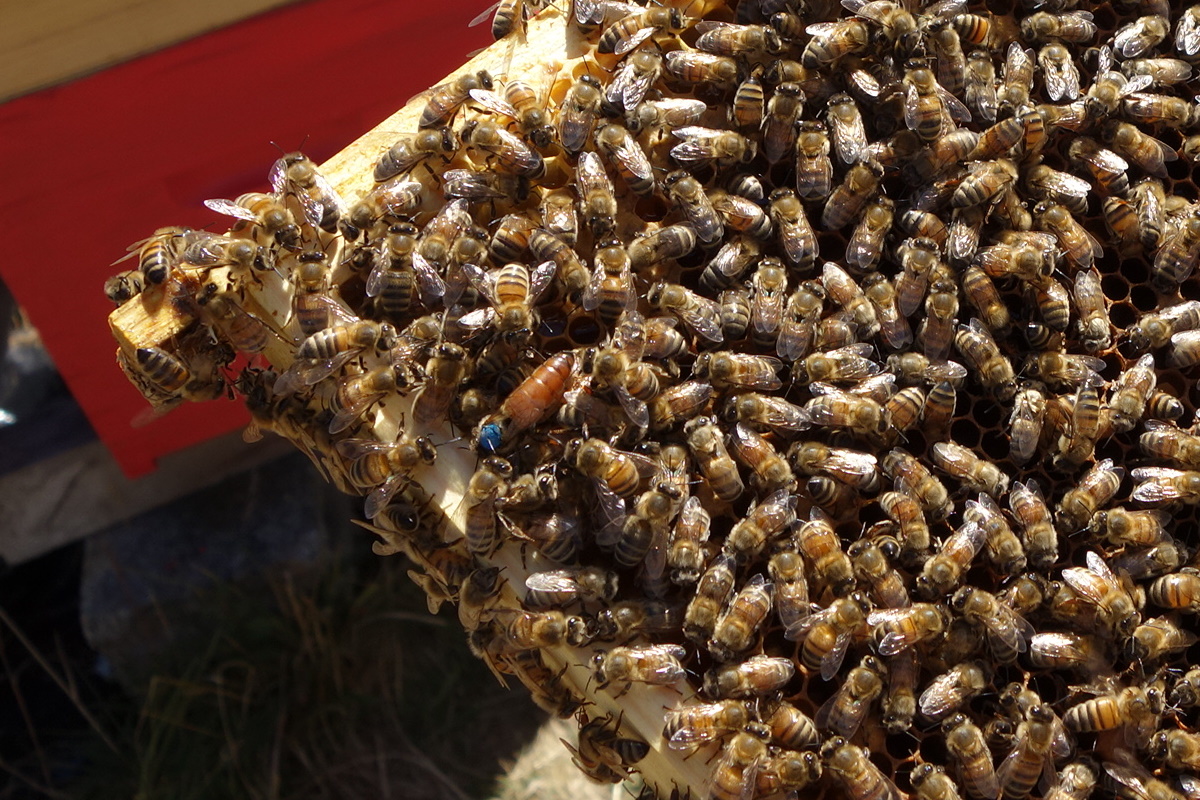
We are invited to leave the hives and retrace our steps for the rest of the discovery. We take off our wetsuits and are happy to find the fresh air! This experience as close as possible to bees raised new questions that we hasten to ask the beekeeper.
Honey is not an acquired food product. Indeed after the hard work of the bees from the flower to the hive, then a transformation in the heart of the hive, the beekeeper takes over: extraction, filtration, maturation and packaging. Laurent presents the machines through which the honey passes before taking on the aspect that we consume.
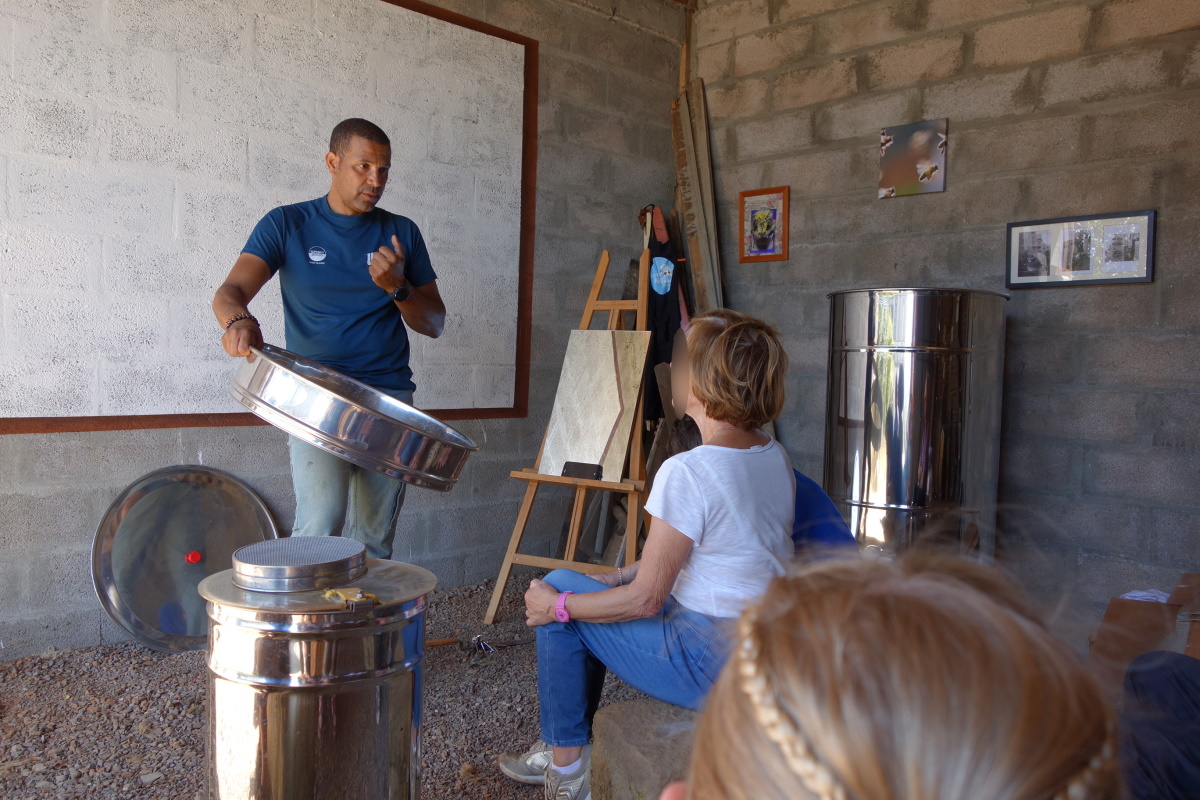
And since children have mouth water, a tasting session is essential! We go to the shop and Laurent offers us some honeys to taste. All-flower honey, spread, cooking honeys, nougat… He shows us the possibilities of product variations associated with original flavors.
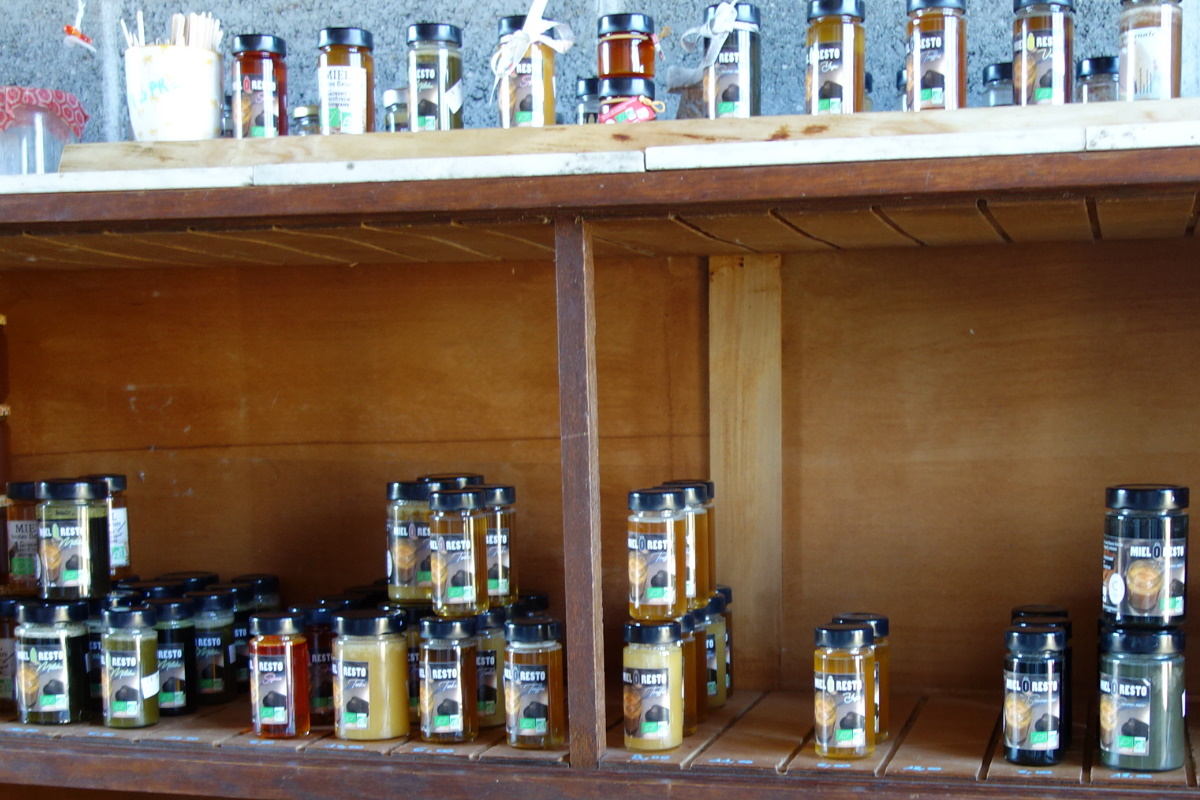
It is on this tasty note that our discovery ends. Good thing, it's lunchtime and this tasting made us hungry! I suddenly want a garden salad seasoned with honey and yuzu. And why not a goat cheese drizzled with summer honey for dessert…
This visit was a great family discovery that is both educational and rich in emotion. We had never approached bees so closely and this experience remains memorable for young and old alike. For older children, it reminds us of the importance and fragility of this insect. For the youngest, it raises awareness about the protection of natural biodiversity. I suddenly want to add some flowers to our garden ...
